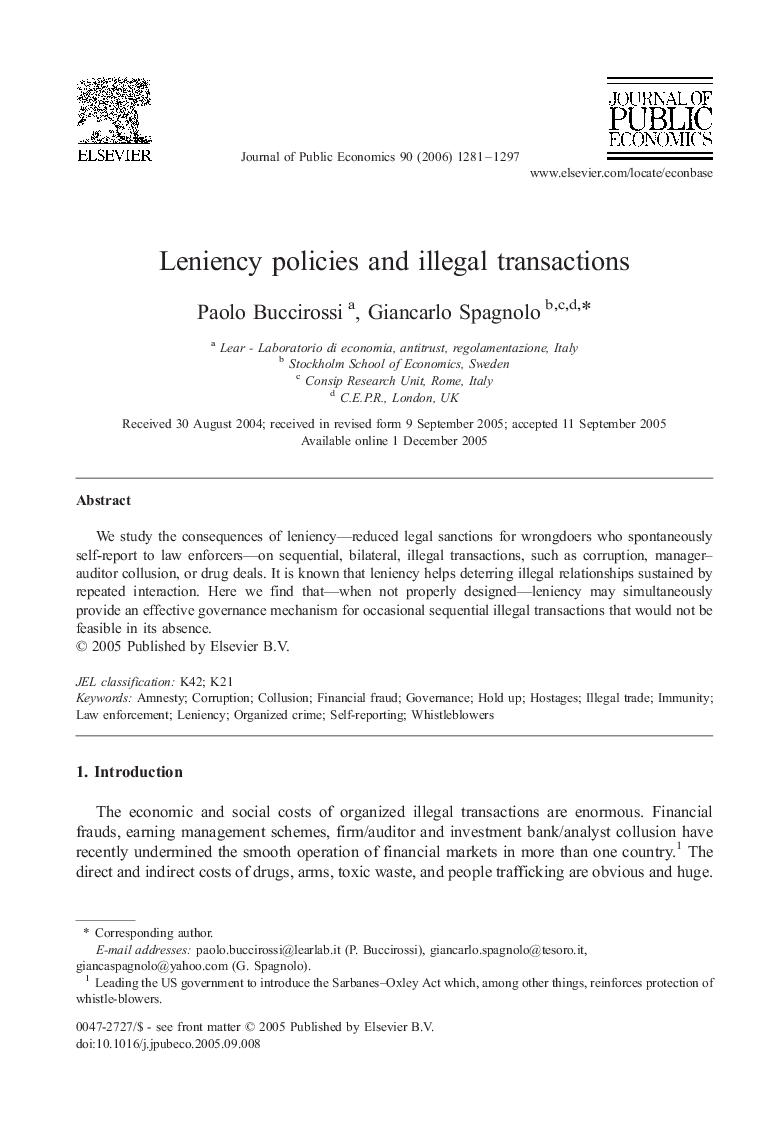| Article ID | Journal | Published Year | Pages | File Type |
|---|---|---|---|---|
| 969573 | Journal of Public Economics | 2006 | 17 Pages |
Abstract
We study the consequences of leniency—reduced legal sanctions for wrongdoers who spontaneously self-report to law enforcers—on sequential, bilateral, illegal transactions, such as corruption, manager–auditor collusion, or drug deals. It is known that leniency helps deterring illegal relationships sustained by repeated interaction. Here we find that—when not properly designed—leniency may simultaneously provide an effective governance mechanism for occasional sequential illegal transactions that would not be feasible in its absence.
Keywords
Related Topics
Social Sciences and Humanities
Economics, Econometrics and Finance
Economics and Econometrics
Authors
Paolo Buccirossi, Giancarlo Spagnolo,
